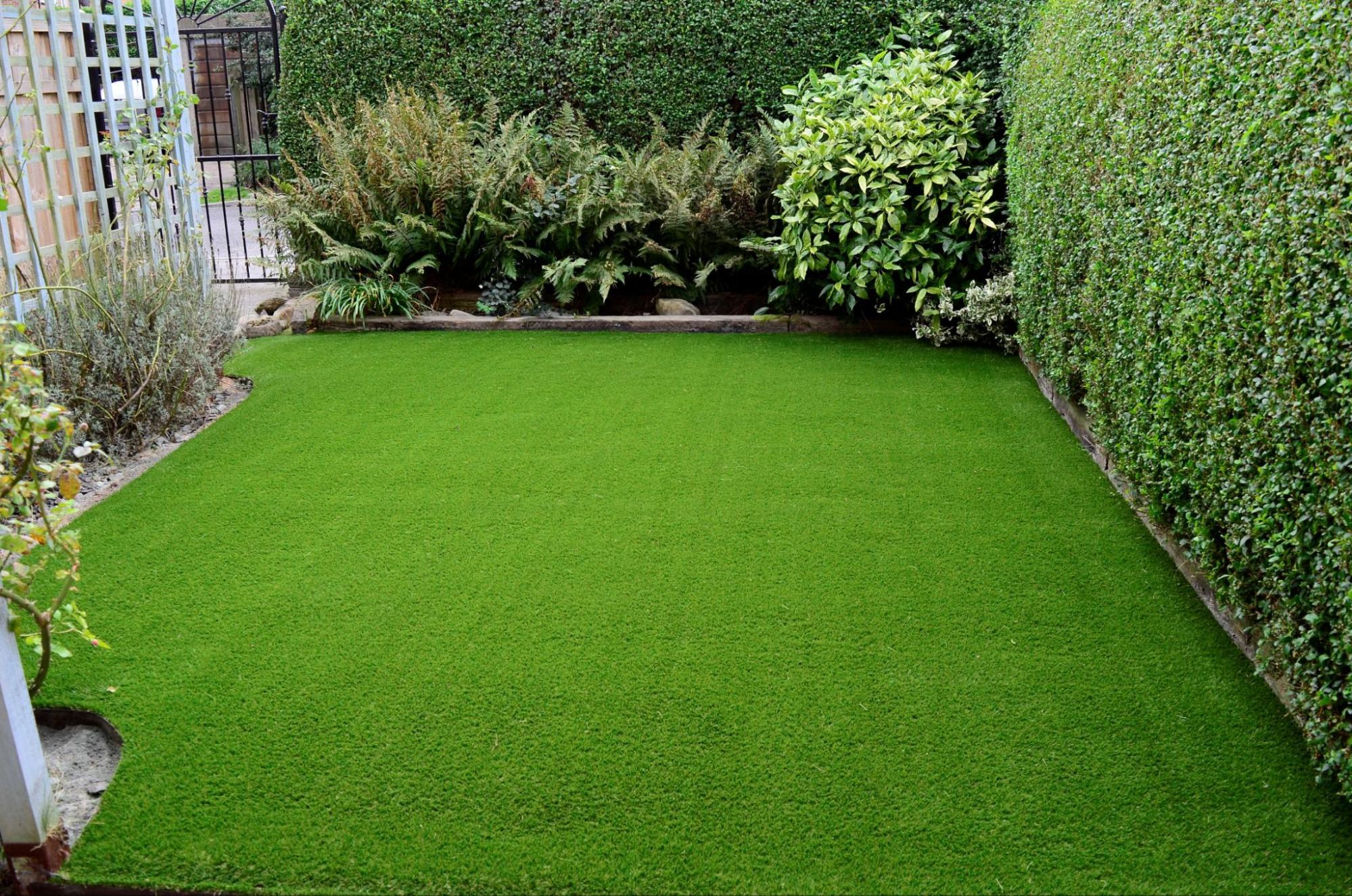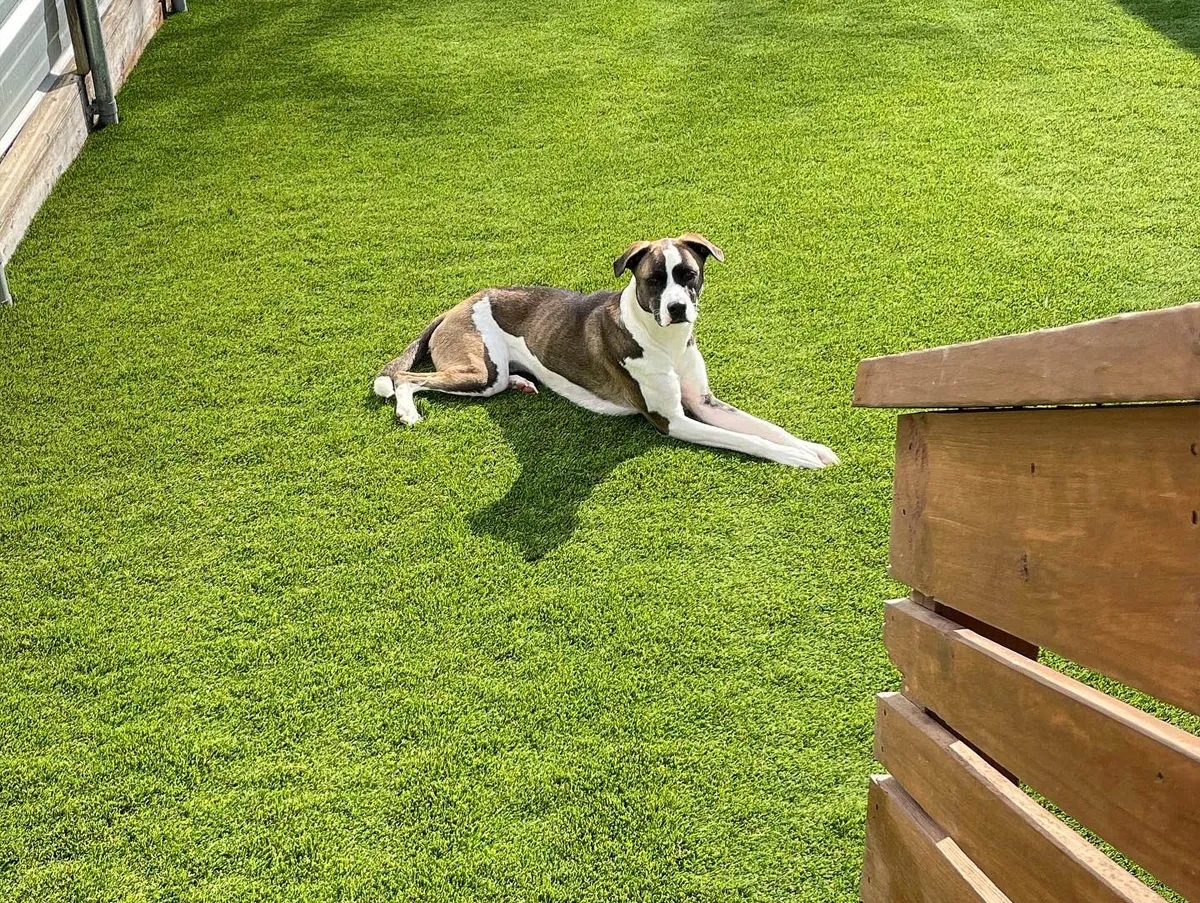Professional Arizona Turf Installation Solutions for Residential and Business Use
Professional Arizona Turf Installation Solutions for Residential and Business Use
Blog Article
Explore the Environmental Benefits of Opting for Synthetic Grass Solutions
The adoption of fabricated turf options offers a compelling chance to resolve pushing environmental obstacles. By considerably lowering water use and reducing the application of unsafe chemicals, these alternatives not only advertise lasting landscape design but additionally secure neighborhood ecosystems.
Water Conservation Perks
One of the most considerable benefits of artificial lawn is its ability to save water. In comparison, man-made lawn does not need watering, substantially lowering the general demand for water sources.
By eliminating the demand for regular watering, fabricated turf adds to sustainable landscape techniques and helps alleviate the ecological effect of too much water consumption. Additionally, the preservation of water encompasses the decrease of runoff, which can lead to dirt disintegration and river air pollution.
Additionally, the setup of man-made grass enables house owners and districts to allocate water resources more effectively, concentrating on vital uses such as alcohol consumption water and farming. The change in the direction of synthetic grass not only promotes accountable water usage but additionally straightens with more comprehensive environmental goals targeted at preserving natural resources.
As neighborhoods progressively prioritize sustainability, the water conservation benefits of synthetic grass present a compelling situation for its adoption in business and household landscape design projects.
Minimized Chemical Usage
The transition to synthetic grass significantly lowers the reliance on chemical therapies frequently utilized in all-natural yard maintenance. Conventional turf monitoring usually includes the application of chemicals, herbicides, and fertilizers to advertise growth and control pests. These chemicals can posture dangers to human health and wellness, neighborhood wildlife, and the setting, contributing to dirt and water contamination.
In contrast, synthetic turf gets rid of the demand for these hazardous compounds. By minimizing the launch of artificial substances right into the environment, artificial turf promotes healthier dirt and water systems.
Furthermore, the absence of chemical overflow connected with synthetic grass setups aids secure neighborhood waterways from air pollution, sustaining aquatic life and maintaining biodiversity. Turf installation phoenix az. As neighborhoods increasingly prioritize sustainable practices, choosing synthetic grass presents a viable solution that aligns with environmental preservation goals. Through this shift, residential or commercial property owners can enjoy lush environment-friendly spaces without endangering eco-friendly health and wellness, leading the way for an extra sustainable future
Lower Carbon Footprint

Additionally, the setup of man-made grass can cause considerable water preservation. All-natural yards require significant quantities of water for irrigation, which not only contributes to the carbon footprint related to water removal and treatment yet also stress regional water sources. In comparison, man-made grass requires very little maintenance, requiring no watering, therefore click to investigate significantly minimizing water use and its connected power prices.
Furthermore, the durability of synthetic grass contributes to its decreased carbon influence. With a life-span of approximately 15 years or more, the need for regular replacements is reduced, causing less waste and reduced energy usage in manufacturing and getting rid of typical yard choices. In general, man-made turf provides a sustainable option for eco conscious landscape design.
Environment Preservation
Environment preservation is a vital consideration in the dispute over landscaping options, especially when comparing synthetic grass to natural lawn. All-natural yard yards frequently call for considerable upkeep, including making use of plant foods, pesticides, and herbicides, which can adversely influence local ecological communities. These chemicals can seep into the soil and rivers, damaging indigenous flora and animals and disrupting regional habitats.
In comparison, man-made lawn offers an opportunity to reduce the environmental footprint of landscape design. By going with artificial turf, house owners can lessen the disturbance of natural environments related to conventional lawn care methods. Fabricated lawn removes the requirement for hazardous chemicals, therefore securing neighboring wild animals and preserving the integrity of surrounding ecosystems. The installment of artificial turf can lead to the conversion of former lawn areas into more biodiverse landscapes, such as pollinator gardens or native plant areas, which can sustain regional wildlife.
Ultimately, the shift to man-made lawn not just preserves water and lowers upkeep initiatives but additionally promotes a much more harmonious connection in between human activities and the native environment, advertising environment conservation while doing so.
Long-Term Sustainability
Long-lasting sustainability is a critical consider assessing the benefits of synthetic grass over traditional yard yards. One of one of the most considerable benefits of synthetic grass is its resilience; it can last up to 15-20 years with minimal upkeep, whereas natural grass calls for regular reseeding and replacement. This long life minimizes the need Source for consistent sources, such as water, fertilizers, and chemicals, which are crucial for preserving a healthy yard lawn.
In addition, synthetic grass adds to a reduction in carbon exhausts connected with yard treatment tools. Standard grass commonly call for gas-powered mowers, leaners, and blowers, all of which add to air contamination. Phoenix turf companies. In comparison, synthetic grass eliminates the demand for such equipment, promoting a cleaner try here setting
Moreover, the production of synthetic grass progressively makes use of recycled products, boosting its sustainability account. As makers take on eco-friendly practices, the environmental impact of synthetic grass remains to decrease.

Conclusion
The fostering of fabricated turf remedies offers substantial ecological benefits, consisting of significant water conservation, decreased reliance on dangerous chemicals, and a reduced carbon impact. Furthermore, synthetic grass aids in preserving all-natural environments by decreasing land disruption and advertising lasting sustainability through using sturdy products. Collectively, these elements emphasize the potential of artificial lawn to add positively to environmental wellness and use a sensible option to typical landscape design practices in an increasingly resource-conscious globe.
In comparison, artificial turf does not require watering, dramatically decreasing the overall need for water resources. By decreasing the release of synthetic substances into the ecological community, man-made turf promotes healthier dirt and water systems.
Moreover, the installation of man-made turf can result in significant water conservation. In comparison, artificial grass needs marginal maintenance, needing no watering, consequently dramatically minimizing water usage and its connected power expenses.

Report this page